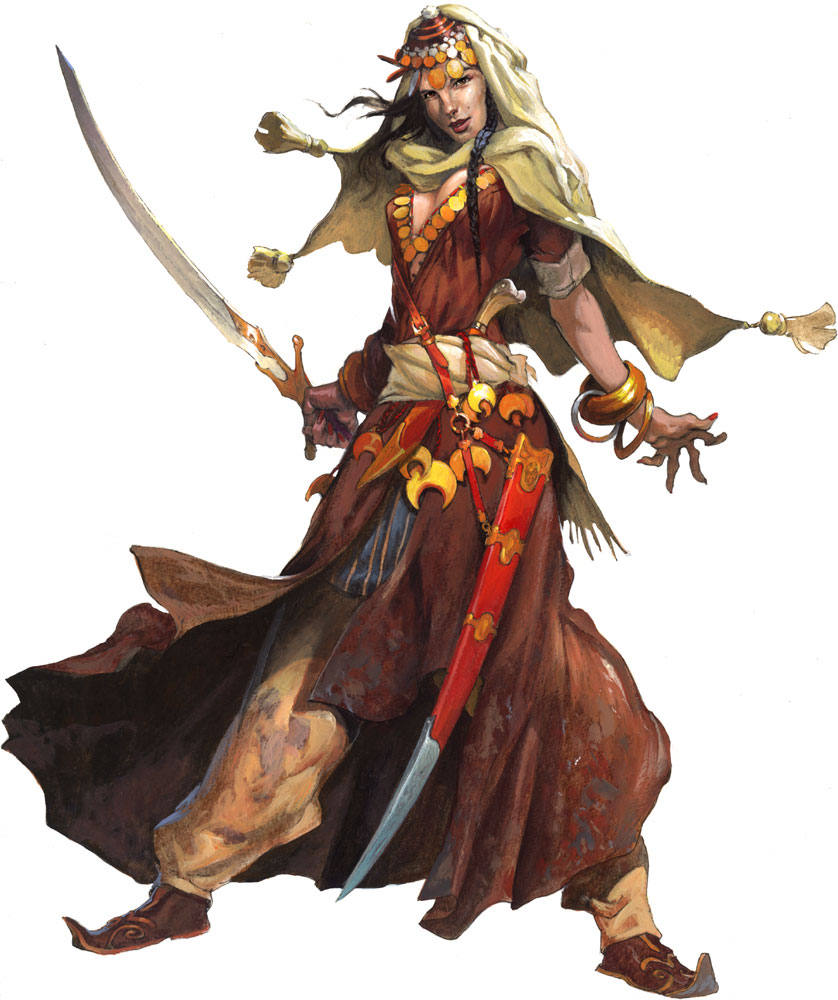Races
- Kismet is a human-centric setting, all the PC belong to one of the following races:Human, Genasi (a mixed bloodline of human/genie, elemental powers), Tiefling (human/devil hybrids, from Irrem, the city of pillars,) and Goliath (giant humans from heathen lands.)
- If your race has less than +3 total ability modifiers, add another point to one of your abilities.
- Substitute the languages in the PHB with the following options: Trade, Salt, Pillar, Sword, Coin, Dune, and Silk
Classes
- All classes in the PHB are available, there are some strings attached to them. See below:
- Bardic Colleges all have an initiation before you become a member and gain the benefits. The College of Lore demands a rare tome from barbaric lands. The College of Valor requires you to win a match at a Fight House. The College of Honey holds the Feast of Flowers.
- Clerics' affiliation with the 7 Virtuous Ones is on display in their clothing. Men of the cloth are vegetarian, consumption of meat will cause loss of station as it denotes a spiritual stain. Restoration of spiritual powers would either require great acts of contrition or conversion to Druidism.
- So on, and so forth. I'll embellish these further on with class specific elaborations.
Ability scores
- Allocate 15, 14, 13, 12, 10, 8 across your 6 stats.
- Characters in Kismet choose 2 backgrounds, rather than just one. This represents the broad life experience of the characters and the Caliphate's cosmopolitan society.
- Feats are available in Kismet, everything in the book is open.
- A character starts with 5 hero points at 1st level. When you gain a level, your total resets to 5. Hero points can be spent to add 1d6 to an attack roll, an ability check, or a saving throw, or to turn failure on a death saving throw into a success




No comments:
Post a Comment